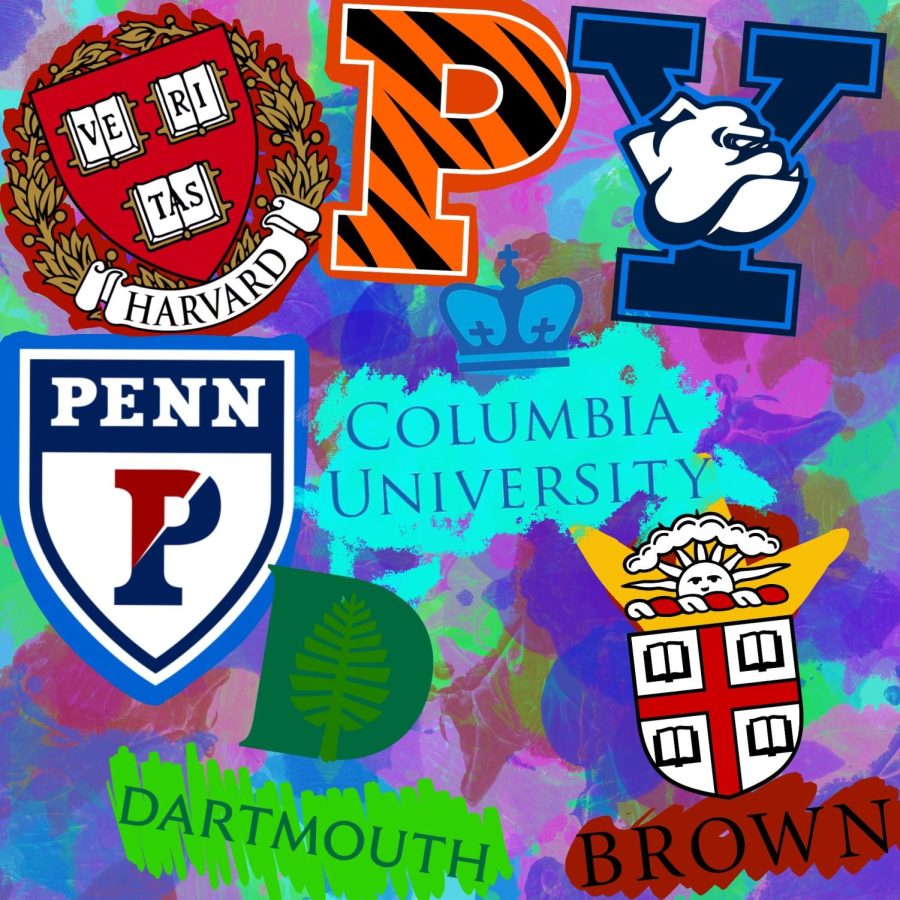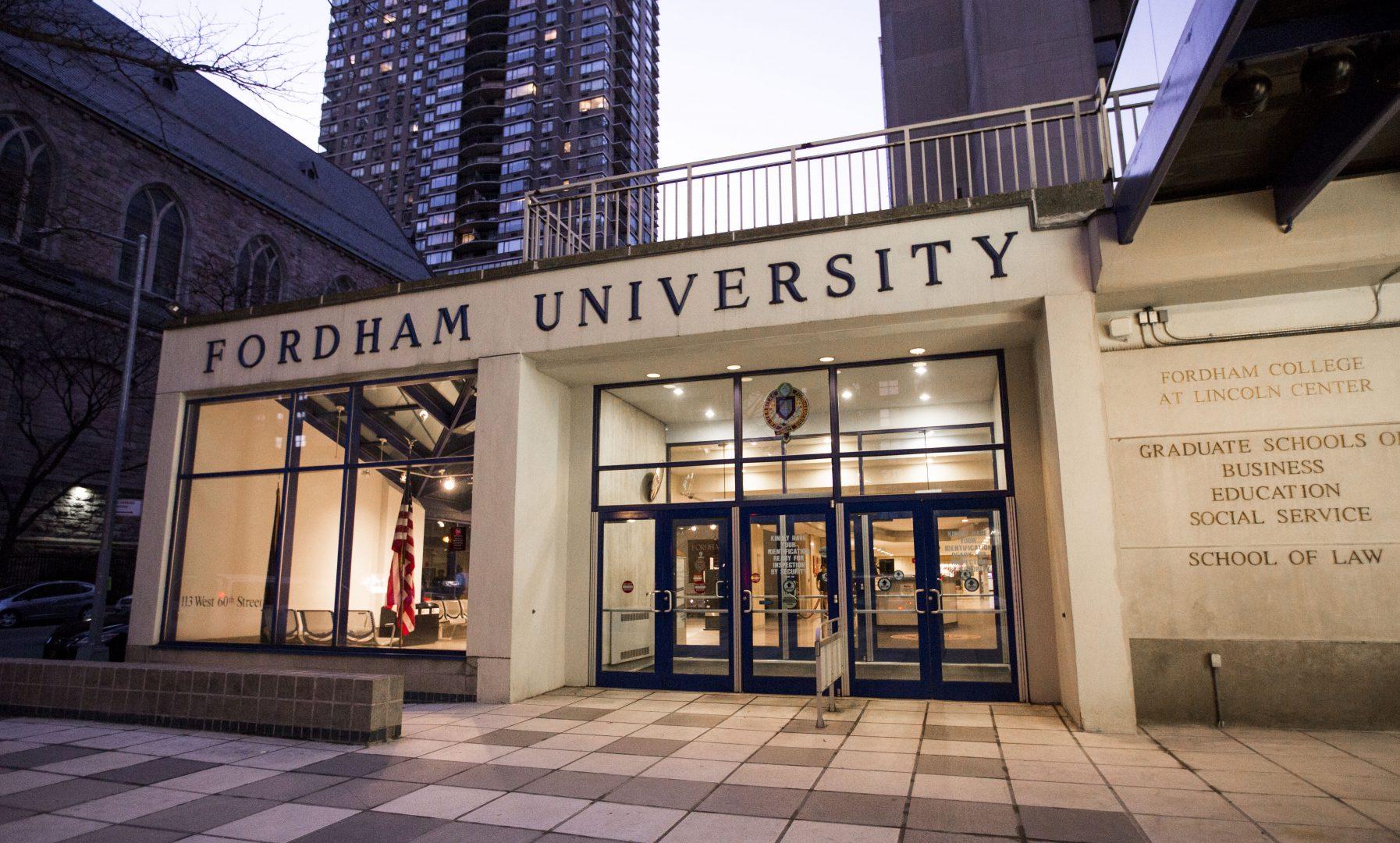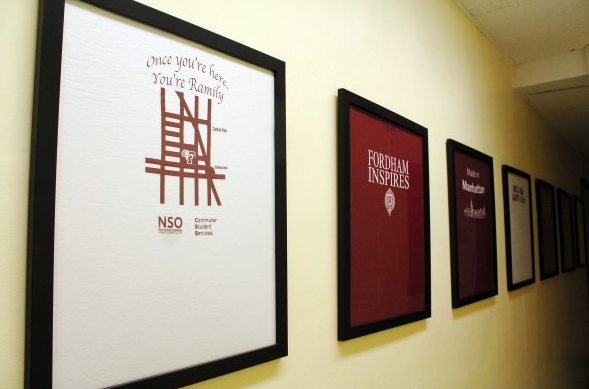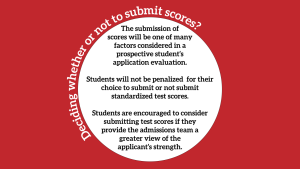Going to an Ivy Doesn’t Make You a Genius
The self-proclaimed kings of academia are really just leaders in elitism and gatekeeping
April 19, 2023
The United States is no stranger to oppression. In New York, we seem to embody the classist values of our forefathers to a T. Ranked the most unequal state in the country, it’s no surprise that New York also harbors the most Ivy League schools, containing both Columbia and Cornell. When examining the stark inequalities of race, class and income in the U.S., it is imperative to look at education. Despite being one of the most educated countries in the world, the U.S. education system is rampant with discrimination.
The Ivy League is the gold standard of American higher education and intellectualism at large, earning both domestic and international praise for (supposedly) producing and nurturing only the finest minds. Yet, the Ivy League rests on a bedrock of colonialism and white supremacy, a lasting vestige of the first American class hierarchies. Seven of the eight current Ivy League colleges were among the first nine universities established in the original colonies.
These schools have also been private universities for the entire duration of their existence — eternally closed to the general public, catering almost exclusively to those who can afford high tuition and supply the school with their “generous” donations.
These institutions undoubtedly promote a rigorous academic atmosphere and have been responsible for many great American minds, but they have also been responsible for some of the richest and most tyrannical capitalists this nation has ever seen.
These institutions manage to largely avoid the glaring eye of “cancel culture” and growing class resentment because of their reputation as intellectual hubs and places of free expression. But it is these very institutions that directly contribute to the rigid hierarchies of the modern world. While Fordham is certainly not immune to these problems, the Ivy League takes elitism to another level.
Here, the next generation of oppressors is trained in exclusion and wealth accumulation through strategies such as trust funds and insider trading that are inaccessible to most other students. It is on these ancient campuses where students learn to exploit the systems built for them. It is time to recognize that American education has shifted from a parlay of ideas to a competition for the biggest check.
What does the modern Ivy offer students that outclasses every other American university? There are campuses just as expansive, facilities just as state-of-the-art, and test scores just as high, but at the end of the day, it is the shiny name of the school on resumes that opens doors for its students. The Ivy League, however, is not the pinnacle of intelligence and does not always produce the best students.
Ivy League institutions are geographically clustered around historical wealth centers, with every Ivy League school located in the Northeast.
These institutions undoubtedly promote a rigorous academic atmosphere and have been responsible for many great American minds, but they have also been responsible for some of the richest and most tyrannical capitalists this nation has ever seen. Ivy League schools are flooded with students who have guaranteed futures and padded wallets. For every true intellectual to walk the halls of an Ivy League university, there are 10 who stumble through them in a stupor.
This is the critical flaw of Ivy institutions: Instead of fostering intellectual discussion, these colleges become echo chambers, reflecting their biases back onto the students. Does it make rational sense that eight universities have produced most of the industry leaders throughout the entire lifetime of our country? The answer is no, and the prevailing truth is that these colleges are merely very large cradles for the ever-hungry nepotism babies who flock through their gates every year.
Ivy League institutions are geographically clustered around historical wealth centers, with every Ivy League school located in the Northeast. (The most equitably educated state in the country is Iowa, and yet it houses not a single Ivy League college.) Having long served those with access to generational wealth, these colleges are found in the oldest and wealthiest parts of the country.
The Ivy League remains out of reach for much of the American population. The laurels of the U.S. education system are truly owed to state universities, which are constantly expanding their course selections and are an accessible means of higher education for the American people. Credit is due to state lawmakers who fight to provide college loan assistance for in-state students, and to the community colleges that harbor trade schools and provide alternative forms of education in diverse fields. These are the components of the system that form the real foundation of American education and truly help improve our polarized culture of misinformation, which feeds off of media illiteracy.
The point of education on a national scale is to cultivate minds for progress. We only lose potential by locking it behind a price barrier.
American education is phenomenal because our teachers are phenomenal. Its excellence comes not merely from existing for so long but from the rigorous standards established by Horace Mann for the first public schools. The reality is that an “Ivy” education should be available to every willing student, but the Ivies will likely keep their doors closed no matter what, clinging to the exclusivity that defines them.
While the Ivy League maintains high academic standards and does not exclusively accept the uber rich, there are still massive inequities that prevail among its ranks. A National Bureau of Economic Research article reported that “children whose parents are in the top 1% of the income distribution are 77 times more likely to attend an Ivy League college than those whose parents are in the bottom income quintile.” Ivy League schools serve as the bassinet for the adult-children of the wealthy elite. Attaching its name to any young student in the country can instantly elevate one from the lower and middle classes to the life of a six-figure professional, regardless of their intelligence or talent.
There is no class education or equity training that can possibly reconcile the inherently unequal nature of these institutions. As much as we try to address the issue with programs such as affirmative action and equity education initiatives, its resolution requires the Ivies becoming incongruent with the American education system.
The point of education on a national scale is to cultivate minds for progress. We only lose potential by locking it behind a price barrier. American education doesn’t get its prestigious reputation from the validation of foreign countries that go bug-eyed at a name-drop but from the intellectual standards we have defined and cultivated over the years. I would like to claim my nation as one of innovation, yet it is an inequitable cesspool where wealth is power.
The Ivy League represents nothing but a faux intelligence drowning in gaudy classism. The next Einstein might very well be getting bachelor’s and master’s degrees from a state university or community college right now. Education is what we make of it, and those thirsty for knowledge will always find it. If I know one thing, it’s that to become a genius, one doesn’t need to have the right connections or name — simply the right mind.














Alfredo Forte • Dec 9, 2023 at 10:55 pm
So, FCO ‘86; Columbia Engineering ‘87; Penn Wharton ‘97…. I was a 3-2 Engineering Student. Now, Semi-Retired. I value my Fordham College experience 10 times more than Columbia and Penn combined. Fordham was and I still believe is committed to teaching. Columbia and Penn were free-for-all hyper competatitve cespools. The MBA was the biggest single waste of time and money.. Today, I can’t help but notice Ivy’s producing binary, non-critical thinking young people taught by soft-headed professors who are nothing but a bunch of burnt out old blow hards…I would question the value of attending any Ivy League. They certainly aren’t worth the $90k/yr room, board and tuition.. Maybe now that wealthy alumns are waking up and shutting off the cash spigot, they might get the message.
Jed • Apr 24, 2023 at 7:29 pm
Tell me you were rejected from your dream school without telling me you were rejected from your dream school lol
Jeff • Apr 24, 2023 at 7:23 pm
Lol so salty
Lisa Wolfe • Apr 24, 2023 at 7:08 pm
As a low income scholarship student at Harvard in the late 80’s, I was struck throughout this article that the person writing it had apparently spent very little time on ivy campuses or with alumni. My experience was vastly different from the one described. Yes, the name has opened doors but it has certainly never been the golden ticket implied in this article.
M. McClure • Apr 24, 2023 at 1:00 pm
The Ivies are increasingly about being connected and/or a legacy. As a rule, true intellectuals seek out the most serious of schools: MIT, UChicago, CalTech sit at the top of that list. Here connections matter less than gray matter. Plus any school that would admit JDT to “study” real estate is in question. And to be fair, Dartmouth is solely in the Ivy League owing to its age, not academics.
Alyce • Apr 23, 2023 at 11:00 pm
As a Penn alumnus, I can say that the cost of education did not exclude me from the opportunity to get an Ivy League education. I was awarded generous grants and took student loans for the rest. I worked very hard to gain admission by excellent grades, and numerous extracurricular activities. I do not think the education was better than other good schools, but having an Ivy-league education on my resume has helped me to stand out and get offers for employment.
Oliver Levy • Apr 23, 2023 at 6:14 pm
This reminds me of a myth I’ve seen many times (and in the title of the article, and the last paragraph, etc..): that getting into an Ivy League college makes you a genius, over and beyond all students from other colleges. Intellectually curious, high achieving students will do well anywhere they go. An ivy-like education is within reach for all of these students, but it happens to be easier to access resources at an Ivy League. This article has combined generalizations about the Ivy League and a disingenuous narrative to reach false conclusions.
As JR points out though, the average level of academic rigor, and focus and curiosity among its students, is much higher at an Ivy League than elsewhere.
The general strength of the American education system has always been founded on its public education system. No one has argued differently. That doesn’t negate the fact that Ivy Leagues are our preeminent research institutions, have the highest retention rates and best academic outcomes.
Jay • Apr 23, 2023 at 6:05 pm
You do realize that all the Ivy League schools are in the Northeast because it’s an athletic conference, right? Because it sure seems to me like you’d rather stick to your “Ivies bad” position than do some actual research.
Kang Haeng Bu • Apr 23, 2023 at 7:01 am
I am UCLA & PENN STATE ALUMNI
I LOVE PENN STAE & UCLA
Hiftill • Apr 23, 2023 at 1:20 am
Overall, I respectfully disagree. I think that a lot of programs that Ivies have for addressing low and middle-class accessibility to education are actually really forward and that being with some of the brightest minds of the country by virtue of the admission process (which is becoming significantly more inclusive than it used to be) does create a level of intellect normally difficult for someone at a state university to achieve, where they might be surrounded by many Party-Students and I-Only-Go-Here-Because-I’m-Good-At-Football students. I understand a few of your points, but arguing that Ivies should be more like public state universities is one hell of a stretch. Many public state universities are known to perhaps be rigorous in comparison to other public universities within their respective state, but pale in comparison to an Ivy League. They’re in, quite literally, a league of their own. I would actually flip this argument and argue myself that: in terms of academic rigor and ensuring that students are creating a strong, driven network, public state universities should work to be more like Ivy League Universities so that their names also carry significant weight. There’s a reason that some public state universities aren’t treated seriously on a resume.
Jessica Nelson • Apr 23, 2023 at 1:02 am
As an Ivy League Low-Income student, a mother, partner, daughter, etc. It us astonishing the lack of aid, (better said no aid, except from the government.) I don’t know if I will make it at PENN with the economic fallout. It is heartbreaking! 💔
JR • Apr 22, 2023 at 10:29 am
I’m an Ivy League alum. Agree with some of your points – especially about colonialism – but disagree with your points about the level of discourse that happens in the educational setting of an Ivy.
I have received degrees from a community college, a university, a women’s college, and an ivy. I was pushed academically in all settings, but the caliber was different at the ivy. I sat alongside bright students in each setting, but with different levels of focus, goals, and intents at the ivy. I sat alongside people who were there because someone else decided it for them – in each setting, but *least” of all in the ivy.
Apologies if this first person experience conflicts with your points of view.
Entitlement comes in a lot of shapes.
So does envy.